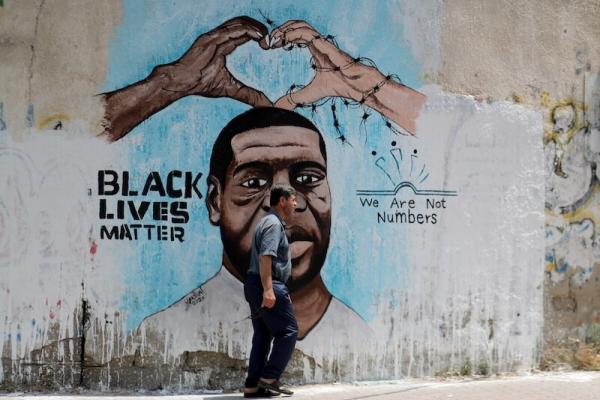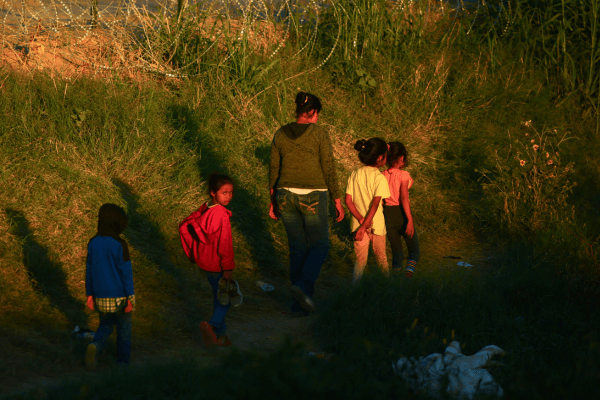The story of Zion resonates with the history of African Americans. Blacks and Jews share common legacies of segregation, genocide, and racial domination. No wonder many enslaved Africans understood biblical Israel as a symbol of freedom from bondage. As historian Robin D.G. Kelley explains, the story of Exodus “provided Black people not only with a narrative of slavery, emancipation, and renewal, but with a language to critique America’s racist state.” Exodus was our political compass through the wilderness of slavery. Except we imagined ourselves as the Israelites, America as Egypt, and “Massa” as the Pharaoh whom freedom fighters like Nat Turner and Harriet “Moses” Tubman demanded, “Let my people go!”
But my view of Israel changed when I learned about Palestine in the streets of Ferguson, Mo.
In 1935, across the river from where my family lived, the Nazi-run parliament unanimously passed the Reich Citizenship Law. A deepening of the already emerging racial regime, this law categorized who was a German citizen, initially stripping those of Jewish descent of their citizenship. Proof of Aryan descent became essential to maintain or gain citizenship, and this was done primarily through both ancestral birth certificates and ecclesial baptismal records. This use of sacramental records meant that, according to historian Kyle Jantzen, “Churches became the most important site for the implementation of Nazi racial segregation.”
With their citizenship stripped from them and sensing the deadly direction Germany was headed, my great-grandmother acquired forged baptismal certificates and the family fled. Initially escaping to Palestine, they eventually made their way to the U.S. I was raised Christian. But I still struggle with this, now being a part of the faith that inflicted displacement upon my family. I lack a coherent emotional grasp of this story, but I can feel the rough shape of the loss. That loss is unexpectedly present, something I stumble over. But in this stumbling is a small, personal grace that has transformed my faith, bringing me to worship a God who is not simply for the oppressed but engages in the work of liberation.
The series, which stars Jodie Whittaker (Doctor Who), Bella Ramsey (The Last of Us), and Tamara Lawrance (Kindred), uses the setting of the prison as a vehicle for exploring the immense pressures that society places upon women, particularly mothers.
Jim Wallis is one of the faith leaders who keenly understands the threat of growing nationalism in the church and autocracy in our politics — and the role that Christians must play in stopping it. In his newest book, The False White Gospel: Rejecting Christian Nationalism, Reclaiming True Faith, and Refounding Democracy, he aims to inspire and equip “all who can be persuaded to resist and help dismantle a false gospel that propagates white supremacy and political autocracy.”
Reverend Christopher Carter is a virtue ethicist, commissioned elder in the United Methodist Church, and professor of theology. He has spent much of his professional and personal life learning to better the treatment of animals as part of an integrated approach to justice for all. Carter, the author of The Spirit of Soul Food: Race, Faith, and Food Justice, defines his work as a practice of “Black veganism,” which “forces us to examine how the language of animality and ‘animal characteristics’ has been a tool used to justify the oppression of any being who deviates, by species, race, or behavior, from Western Christian anthropological norms.”
“I appeal once again that access to humanitarian aid be ensured to Gaza, and call once more for the prompt release of the hostages seized on last Oct. 7 and for an immediate cease-fire in the Strip,” he said in his Urbi et Orbi address.
Gabriel Salguero, president of the National Latino Evangelical Coalition, said the results show an increasing interest from everyday evangelicals — even urgency — to receive guidance on the issue from the pulpit. “More and more evangelicals are looking to scripture and what it has to say about the immigrant, the refugee, and the stranger,” he said. “Evangelicals want to move beyond just political talking points and be discipled on immigration reform.”
I was in high school, visiting my grandparents’ church in Peru, Ind., and the theme for the Sunday school class was “money.” The teacher was quick to bring up a verse that has always sounded like it would be a better fit in Benjamin Franklin’s Poor Richard’s Almanack than the Bible. “The love of money is the root of all evil,” the teacher said, summarizing and abbreviating 1 Timothy 6:10. “It’s not that money itself is evil. Objects, in and of themselves, cannot be evil,” he explained. “It’s a matter of the heart.” That logic sat weirdly with me and so I raised my hand to respond. “Don’t we believe that idols are objects and that they are evil? Also, doesn’t the Bible teach us to resist temptation? So wouldn’t it make sense to resist the temptation of money to avoid all the evil that comes with it?”
According to a recent Pew Research Center survey, religious Americans differ widely on how they refer to the increase in arrivals at the border. While only 45 percent of all U.S. adults say the large number of migrants is a “crisis,” majorities of white Christian groups — 70 percent of white evangelical Protestants, 64 percent of white Catholics, and 57 percent of white non-evangelical Protestants — feel that it is. In comparison, only 32 percent of Black Protestants and 27 percent of the religiously unaffiliated, or “nones,” say the situation at the border constitutes a “crisis.”
A new report from Pew Research Center found that while most Americans think religion has a positive influence on American life, few are willing to have discussions about religious differences.
The report revealed that a majority of American adults (80 percent) would say that “religion’s role in American life is shrinking,” which Pew reported as the highest in the survey’s history. Majorities in each religious group and the religiously unaffiliated say religion is losing influence.









